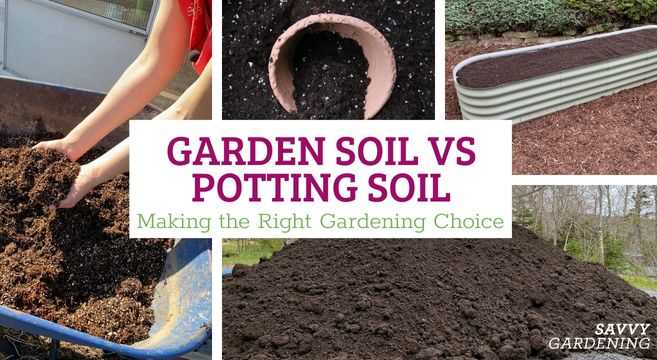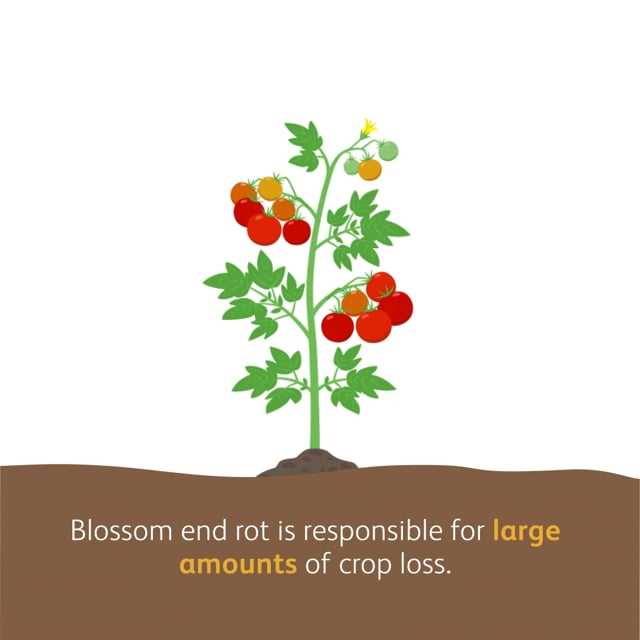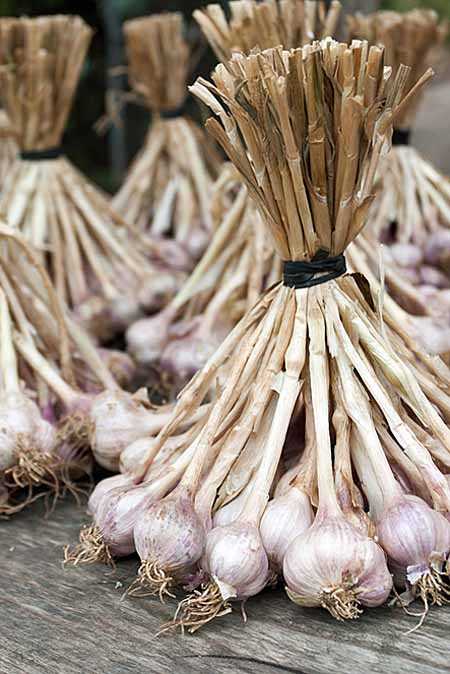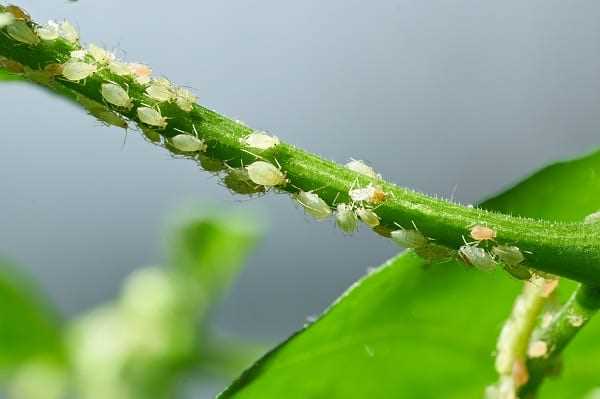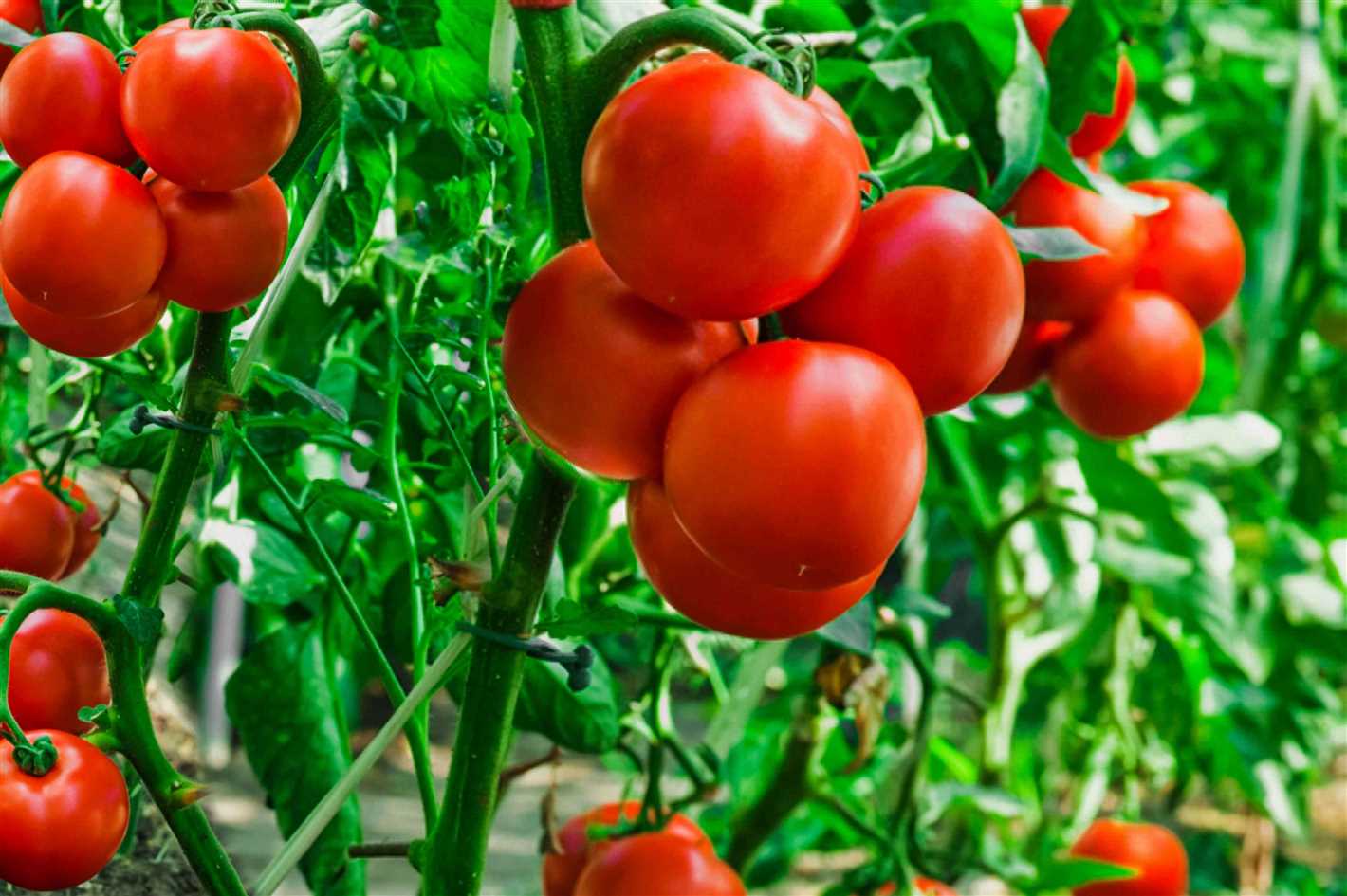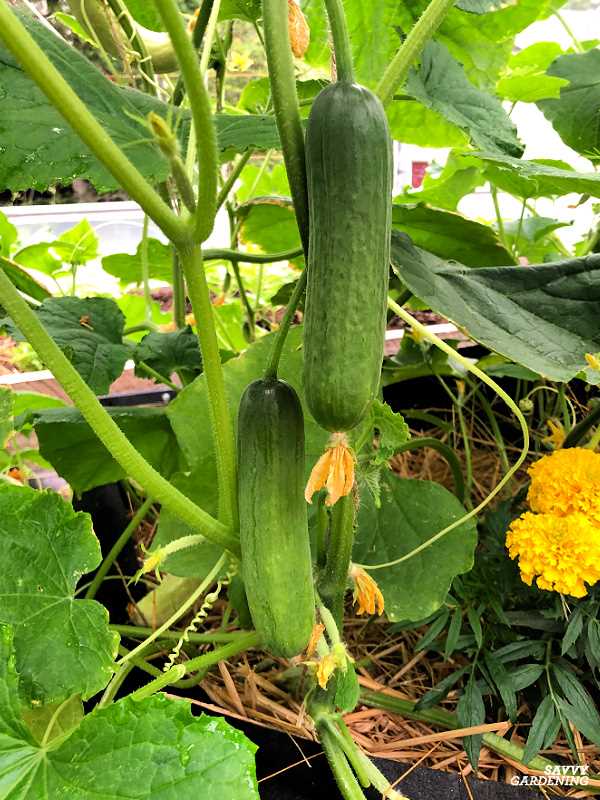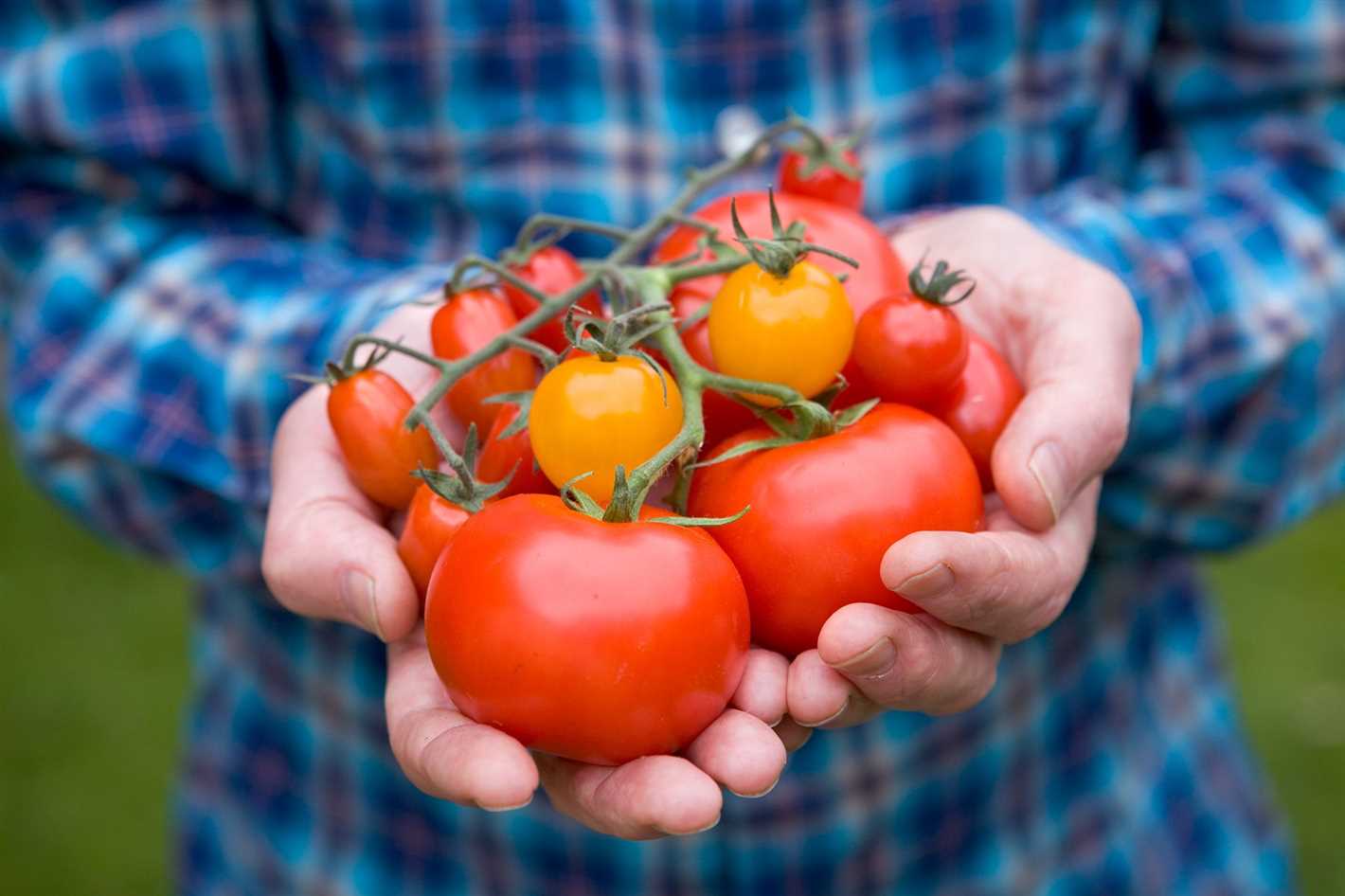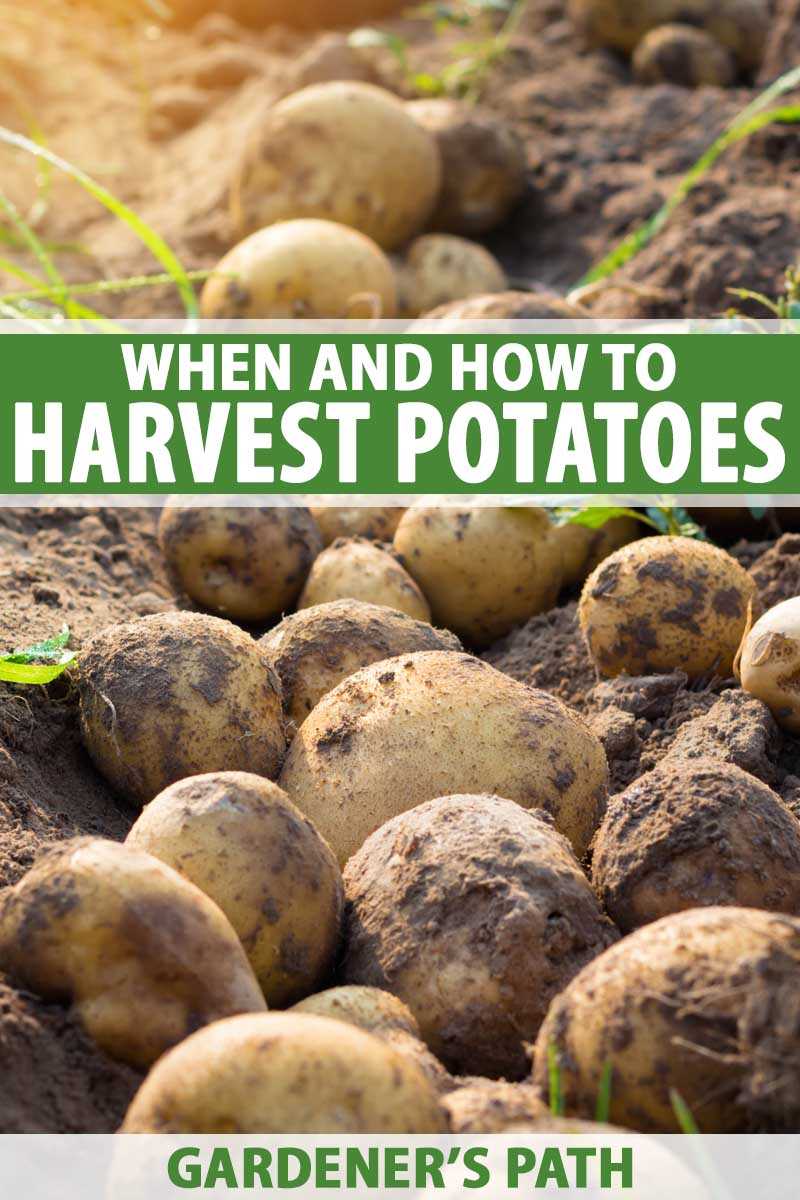- Identify Aphids Infestation Symptoms
- Leaf Curling and Distortion
- Sticky Honeydew
- Yellowing or Wilting Leaves
- Ant Activity
- Aphid Colonies
- Prevent Aphids Infestation with Natural Methods
- 1. Companion Planting
- 2. Attract Beneficial Insects
- 3. Use Organic Pest Sprays
- 4. Maintain Plant Health
- 5. Mulch and Cleanliness
- Choose Beneficial Insects for Aphid Control
- Ladybugs
- Green Lacewings
- Hoverflies
- Parasitic Wasps
- Other Beneficial Insects
- Use Homemade Aphid Repellents
- 1. Garlic Spray
- 2. Neem Oil Spray
- 3. Soap Spray
- Plant Companion Plants to Deter Aphids
- 1. Marigold
- 2. Nasturtium
- 3. Chives
- 4. Garlic
- 5. Catnip
- 6. Mint
- Introduce Natural Predators to Your Garden
- Practice Good Hygiene to Reduce Aphids Population
- Here are some tips to practice good hygiene and reduce the aphid population:
- Conclusion
- Monitor Your Plants for Early Aphid Detection
- Record-Keeping
- Conclusion
- “Question-Answer”
- What are aphids?
- How do aphids reproduce?
- What are some natural ways to fight aphids?
- Is it possible to prevent aphid infestations?
- Can aphids cause serious damage to plants?
- Are there any chemical methods to control aphids?
- “Video” How to Control Aphids! ♀️ // Garden Answer
Aphids are tiny insects that can wreak havoc on your plants and flowers. They are often found in large numbers and can quickly multiply, causing damage to the leaves and stems of your plants. While there are many chemical pesticides available on the market, these can be harmful to the environment and your health. Instead, consider using natural methods to control aphid populations and protect your plants naturally.
One of the most effective ways to combat aphids is by attracting their natural predators. Ladybugs, lacewings, and parasitic wasps are all natural enemies of aphids and can help keep their populations in check. You can attract these beneficial insects to your garden by planting flowers and herbs that they are attracted to. Some good options include marigolds, daisies, fennel, and dill. These plants not only attract beneficial insects but also add beauty and variety to your garden.
Another natural approach to controlling aphids is by using soapy water. Simply mix a few tablespoons of liquid dish soap with water in a spray bottle and apply it to the affected plants. The soap works by suffocating the aphids and disrupting their cell membranes, effectively killing them. Be sure to spray both the tops and bottoms of the leaves, as aphids like to hide in hard-to-reach places. Repeat this process every few days until the aphid population is under control.
If you have a severe aphid infestation, you may need to resort to stronger measures. Neem oil is a natural insecticide derived from the neem tree and can be highly effective against aphids. Mix a small amount with water and spray it onto the affected plants. The oil works by interfering with aphid’s reproduction and disrupting their feeding habits. However, be cautious when using neem oil, as it can harm beneficial insects as well. Only use it when absolutely necessary and follow the instructions on the label carefully.
By following these natural methods, you can effectively control aphids and protect your plants without relying on harmful chemicals. By attracting beneficial insects, using soapy water, and using neem oil sparingly, you can double the impact and maximize your results. Not only will your plants thank you, but the environment and your health will too! So, fight aphids naturally and enjoy a beautiful and thriving garden!
Identify Aphids Infestation Symptoms
Aphids are small insect pests that can cause extensive damage to plants in your garden. It is important to be able to identify the symptoms of an aphid infestation so that you can take appropriate action to control them.
Leaf Curling and Distortion
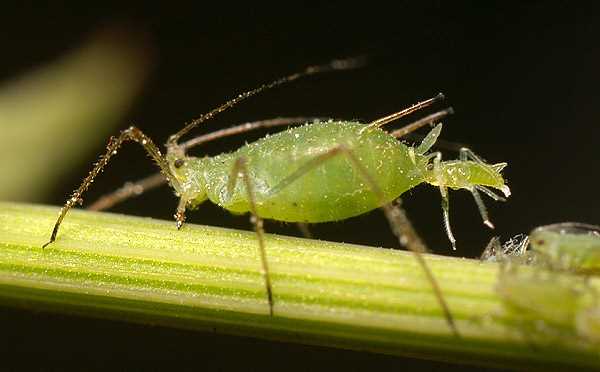
- Aphids feed on the sap of plants, causing the leaves to curl and distort.
- You may notice leaves that appear deformed, twisted, or have a wrinkled appearance.
- Leaf curling and distortion can vary depending on the plant species and the severity of the infestation.
Sticky Honeydew
- Aphids excrete a sticky, sugary substance called honeydew as they feed on plants.
- This honeydew can accumulate on leaves, stems, and even the ground surrounding the plant.
- The presence of sticky honeydew can attract other pests, such as ants, and lead to the growth of black sooty mold.
Yellowing or Wilting Leaves
- Severe aphid infestations can cause plants to become stressed and exhibit yellowing or wilting of leaves.
- Aphids drain vital nutrients from the plant, leading to poor growth and overall decline.
- If left untreated, these symptoms can ultimately result in the death of the plant.
Ant Activity
- Ants have a mutualistic relationship with aphids and may be present near plants with aphid infestations.
- They are attracted to the sugary honeydew produced by aphids and may actively protect the aphids from predators.
- Observing increased ant activity around plants can indicate an aphid infestation.
Aphid Colonies
- Aphids are social insects that live in large colonies.
- You may notice groups of small, pear-shaped insects clustered together on the undersides of leaves or near new growth.
- Aphids can vary in color, ranging from green, yellow, brown, black, or even translucent.
By being able to identify these symptoms, you can quickly detect an aphid infestation and take appropriate measures to control them. Implementing natural methods such as introducing beneficial insects or using homemade insecticidal sprays can help effectively manage aphid populations and protect your plants.
Prevent Aphids Infestation with Natural Methods
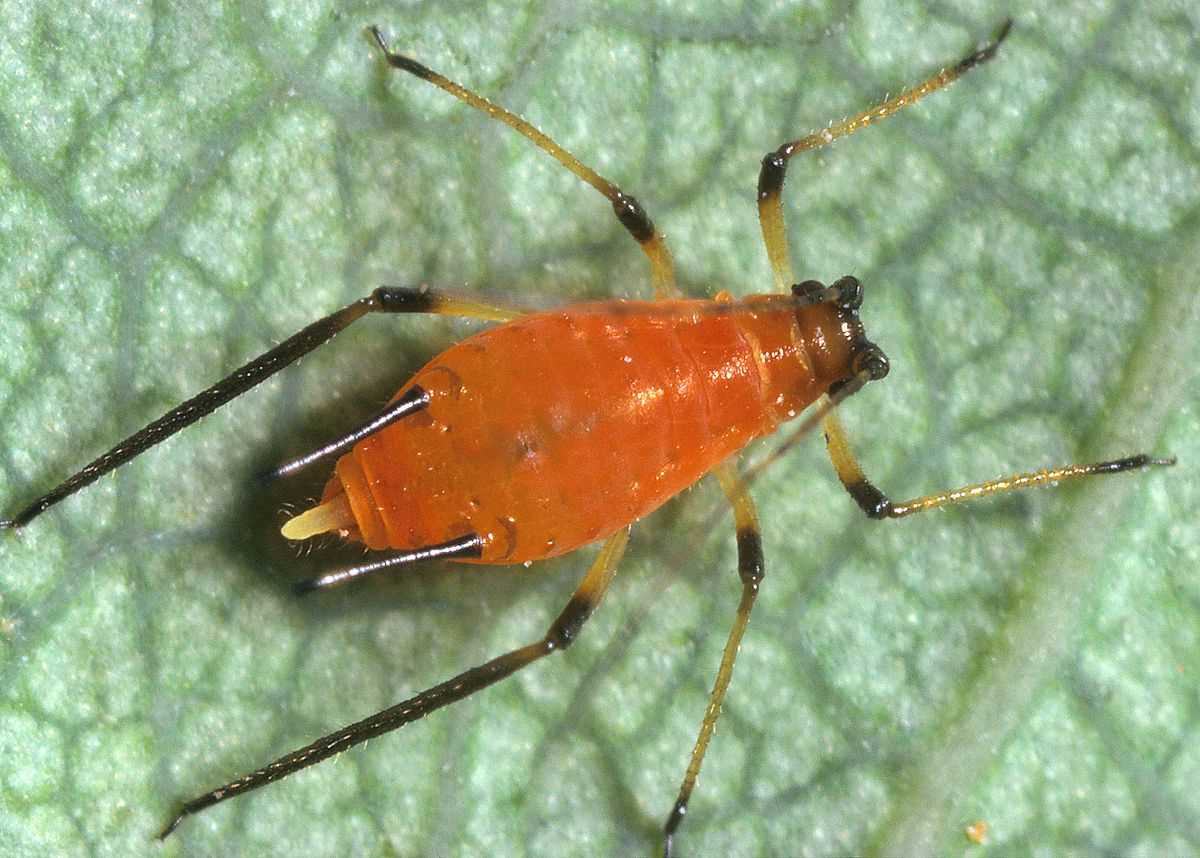
Aphids can be a nuisance in gardens, damaging plants and hindering their growth. Fortunately, there are several natural methods you can use to prevent aphids infestation and keep your plants healthy. These methods are safe for the environment and do not pose any harm to beneficial insects.
1. Companion Planting
One effective method to prevent aphids infestation is through companion planting. Certain plants, such as marigolds, garlic, and chives, repel aphids with their strong scents. By planting these repellent plants alongside your vulnerable plants, you can create a natural barrier against aphids.
2. Attract Beneficial Insects
Encouraging beneficial insects in your garden can help control aphid populations. Ladybugs, lacewings, and parasitic wasps are natural predators of aphids and can help keep their numbers in check. Plant flowers such as daisies, cosmos, and yarrow to attract these beneficial insects to your garden.
3. Use Organic Pest Sprays
If aphids have already infested your plants, you can use organic pest sprays to get rid of them. These sprays are made from natural ingredients such as neem oil or insecticidal soap and are safe for use around humans and pets. Be sure to follow the instructions on the product label for best results.
4. Maintain Plant Health
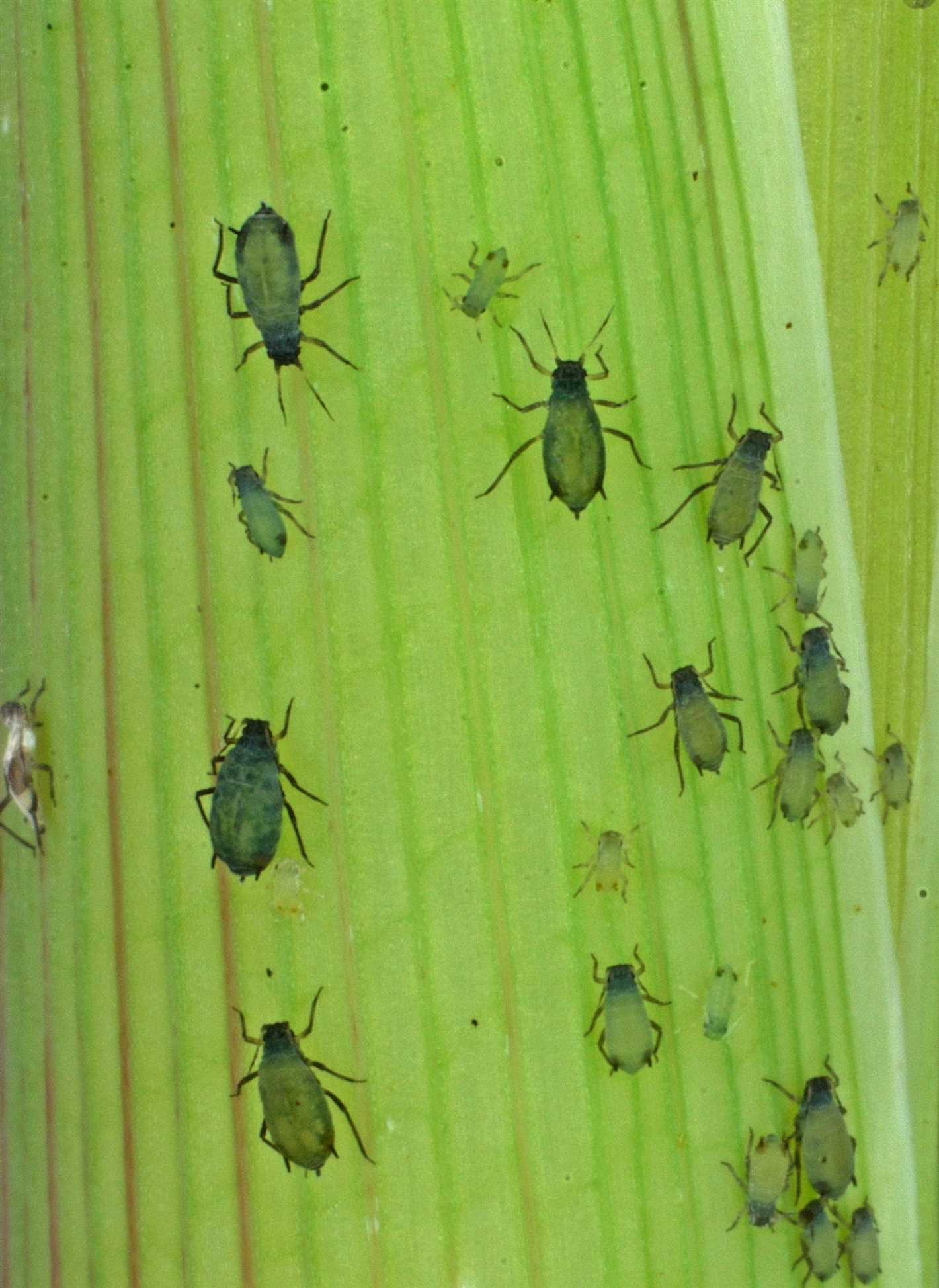
Keeping your plants healthy and strong can help prevent aphids infestation. Regularly fertilize your plants to promote growth and provide them with the nutrients they need. Proper watering and pruning can also help prevent stress on plants, making them less susceptible to aphids.
5. Mulch and Cleanliness
Using organic mulch around your plants can help deter aphids from infesting them. Mulch acts as a barrier and prevents aphids from reaching the plants. Additionally, regularly clean your garden and remove any debris or weeds that may harbor aphids and their eggs.
By implementing these natural methods, you can prevent aphids infestation and maintain a healthy garden without the use of harmful chemicals. Remember to regularly monitor your plants and take action at the first sign of aphids to minimize damage and protect your plants.
Choose Beneficial Insects for Aphid Control
If you’re looking for an effective and natural way to control aphids, consider introducing beneficial insects to your garden. These insects prey on aphids, keeping their population in check and preventing infestation.
Ladybugs
Ladybugs, also known as lady beetles, are well-known for their appetite for aphids. A single ladybug can consume hundreds of aphids in a day, making them an excellent choice for aphid control. You can attract ladybugs to your garden by planting flowers such as dill, fennel, and yarrow, which are known to attract these beneficial insects.
Green Lacewings
Green lacewings are another beneficial insect that can help control aphids. The larvae of lacewings are voracious aphid predators. They have a unique appearance with long, delicate wings and are often called “aphid lions.” You can attract green lacewings to your garden by planting flowers such as coriander, dill, and sweet alyssum.
Hoverflies
Hoverflies, also known as syrphid flies, are excellent aphid hunters. Their larvae feed on aphids and other small insects, while the adult hoverflies help with pollination. You can attract hoverflies by planting flowers such as marigolds, sunflowers, and alyssum.
Parasitic Wasps
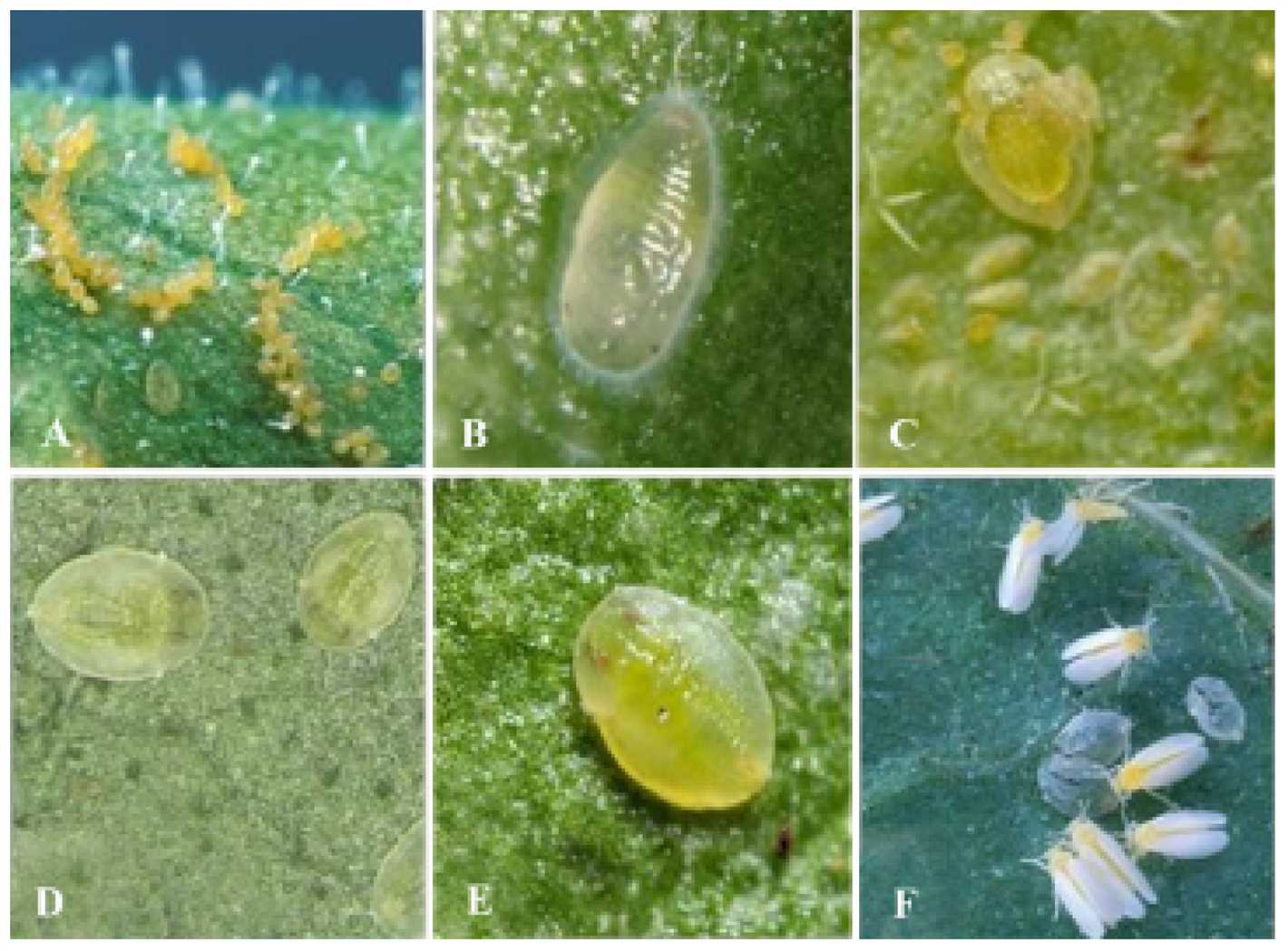
Parasitic wasps are tiny, non-stinging wasps that lay their eggs inside aphids. The wasp larvae then feed on the aphids, eventually killing them. These wasps are natural aphid predators and can be an effective way to control aphid populations in your garden. You can attract parasitic wasps by planting flowers such as dill, coriander, and yarrow.
Other Beneficial Insects
In addition to the insects mentioned above, there are several other beneficial insects that can help control aphids. These include soldier beetles, minute pirate bugs, and damsel bugs. By creating a diverse and welcoming habitat for these beneficial insects, you can increase their presence in your garden and naturally control aphids.
Consider planting a variety of flowers that attract these beneficial insects and avoid using pesticides, as they can harm both the aphid predators and the aphids’ natural enemies. By choosing beneficial insects for aphid control, you can double the impact and maximize the results in your garden.
Use Homemade Aphid Repellents
One of the most effective ways to fight aphids naturally is by using homemade aphid repellents. These recipes are easy to make and use ingredients that are readily available in most households. They are not only effective but also safe for plants, animals, and humans.
1. Garlic Spray
Garlic spray is a potent repellent that can deter aphids from infesting your plants. Here’s how to make it:
- Crush a whole bulb of garlic and add it to a liter of water.
- Let the mixture soak for 24 hours.
- Strain the mixture and pour it into a spray bottle.
- Spray the solution generously on the leaves and stems of your plants.
The strong smell of garlic will repel aphids and other pests, keeping your plants protected.
2. Neem Oil Spray
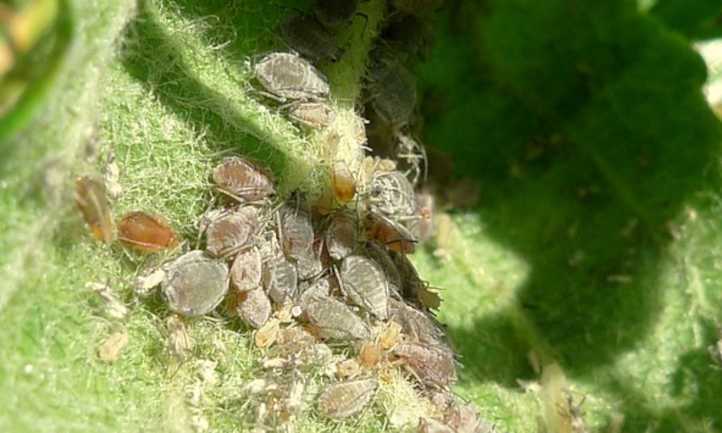
Neem oil is a natural insecticide that can be used to control aphids. Here’s how to make a neem oil spray:
- Mix 1 tablespoon of neem oil with 1 liter of water.
- Add a few drops of liquid dish soap to help emulsify the oil.
- Pour the mixture into a spray bottle.
- Shake well before each use.
- Spray the solution onto the affected areas of your plants.
Neem oil works by suffocating aphids and inhibiting their growth. It also acts as a repellent, preventing aphids from returning.
3. Soap Spray
A simple soap spray can effectively control aphids on your plants. Here’s how to make it:
- Dissolve 1 tablespoon of liquid dish soap in a liter of water.
- Pour the solution into a spray bottle.
- Shake well before each use.
- Spray the soapy water directly on the aphids.
The soap will break down the aphids’ outer shell, causing them to dehydrate and die. This method is best used on smaller infestations.
Remember to test these homemade aphid repellents on a small area of your plants before applying them extensively. If there are no adverse effects, you can continue to use them to naturally fight aphids and protect your plants.
Plant Companion Plants to Deter Aphids
Companion planting is a natural and effective way to deter aphids from infesting your plants. By strategically planting certain companion plants alongside your vulnerable plants, you can create a barrier that aphids find unattractive and deter them from settling in.
1. Marigold
Marigold is one of the best companion plants for deterring aphids. Its strong scent repels aphids and other harmful insects. Plant marigolds around your susceptible plants or in rows between them to create a protective border.
2. Nasturtium
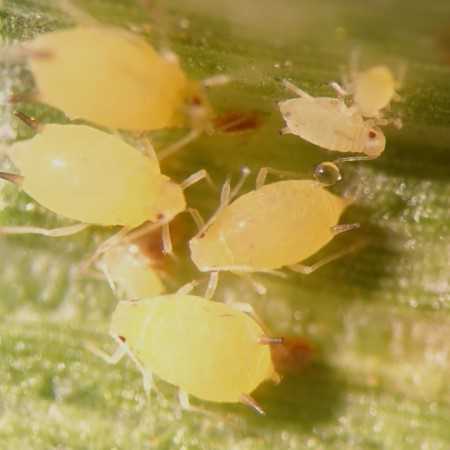
Nasturtium is another excellent companion plant that repels aphids. Its peppery smell is disliked by aphids, making it an effective deterrent. You can plant nasturtiums near susceptible plants or in hanging baskets near your garden to keep aphids away.
3. Chives
Chives have a strong aroma that aphids find unpleasant. Planting chives near your susceptible plants can help deter aphids. Additionally, chives attract beneficial insects like ladybugs and hoverflies, which are natural predators of aphids.
4. Garlic
Garlic not only adds flavor to your cooking but also repels aphids. Planting garlic near your vulnerable plants can keep aphids at bay. Its strong smell helps to deter aphids and other pests.
5. Catnip
While catnip may attract cats, it repels aphids. The aromatic oils in catnip act as a natural deterrent for aphids. Plant catnip near susceptible plants or use dried catnip as a repellent around your garden.
6. Mint
Mint can help deter aphids due to its strong scent. Planting mint around your vulnerable plants can create a barrier that aphids find unappealing. However, be cautious when planting mint, as it can quickly spread and become invasive.
By incorporating these companion plants into your garden, you can naturally deter aphids and protect your plants from infestation. Additionally, companion plants attract beneficial insects that prey on aphids, creating a more balanced ecosystem in your garden.
Introduce Natural Predators to Your Garden
Aphids can be a nuisance in any garden, but by introducing natural predators, you can help control their population without the need for harsh chemicals. Natural predators are beneficial insects that feed on aphids and other pests, keeping them under control naturally. Here are a few natural predators you can introduce to your garden:
- Ladybugs: Ladybugs are perhaps the most well-known natural predator of aphids. These small, colorful beetles feed on aphids at all stages of their life cycle, making them highly effective in controlling their population.
- Lacewings: Lacewings are another beneficial insect that can help control aphids. The larvae of lacewings are voracious eaters and can consume large numbers of aphids in a short amount of time.
- Praying Mantises: Praying mantises are not only fascinating to watch but also effective predators of aphids. These carnivorous insects will patiently wait for their prey and then strike with lightning speed.
- Hoverflies: Hoverflies, also known as flower flies, are attracted to flowers and can be beneficial for aphid control. Their larvae feed on aphids and other soft-bodied pests, making them a valuable addition to any garden.
To attract these natural predators to your garden, you can provide them with the right environment and food sources. Plant flowers that attract beneficial insects, such as dill, fennel, and marigold. Creating diverse and pesticide-free habitats will encourage these insects to stay in your garden and help control aphid populations naturally.
Practice Good Hygiene to Reduce Aphids Population
Aphids are small, sap-sucking insects that can cause significant damage to plants. To effectively control their population and minimize the damage they cause, it is important to practice good hygiene in your garden.
Here are some tips to practice good hygiene and reduce the aphid population:
- Remove Infested Leaves and Plants: Inspect your plants regularly for aphid infestations. If you spot any leaves or plants with a high number of aphids, remove them immediately. This will prevent the spread of aphids to other healthy plants.
- Prune Affected Areas: If you notice any branches or parts of plants heavily infested with aphids, prune them off. This can help reduce the population of aphids and prevent them from spreading to other parts of the plant.
- Weed Control: Keep your garden free of weeds, as they can attract aphids. Regularly remove any weeds from your garden and ensure that there are no hiding places for aphids to thrive.
- Clean Garden Tools: After working with infested plants, clean your gardening tools to prevent the transfer of aphids to healthy plants. Wash your tools with soap and water or wipe them down with alcohol to eliminate any aphids or their eggs.
- Clear Debris and Fallen Leaves: Aphids can hide in fallen leaves, debris, and plant litter. Regularly clean up these areas to prevent aphids from overwintering or finding shelter.
Conclusion
By practicing good hygiene in your garden, you can significantly reduce the aphid population and protect your plants from their damage. Regular inspections, removal of infested plants and leaves, proper pruning, weed control, cleaning of garden tools, and clearing of debris are effective measures to control aphids naturally.
Monitor Your Plants for Early Aphid Detection
Regularly checking your plants for aphids is essential in preventing infestations and minimizing damage to your garden. Early detection allows you to take prompt action to keep aphid populations in check and maintain the health of your plants.
Here are some key tips for monitoring your plants for aphids:
- Inspect your plants regularly, especially the underside of leaves, where aphids are most commonly found.
- Look for tiny, pear-shaped insects ranging in color from green to yellow or black.
- Pay attention to leaves that are curled, distorted, or yellowing, as these may be signs of aphid feeding.
- Check for the presence of sticky honeydew secreted by aphids, which can attract ants or sooty mold.
By monitoring your plants on a regular basis, you can quickly identify aphids and take appropriate action to prevent their populations from exploding.
Record-Keeping
Keeping a record of your observation can be helpful in tracking aphid activity over time and determining the effectiveness of your control methods. Consider using a simple table to note down the following information:
| Date | Plant Type | Number of Aphids | Observations |
|---|---|---|---|
| June 1 | Rose | 10 | Leaves curling |
| June 5 | Tomato | 0 | No aphids found |
| June 10 | Lettuce | 20 | Sticky honeydew present |
Conclusion
Regular monitoring and record-keeping are crucial in managing aphids effectively. By being proactive in checking your plants for aphids, you can catch infestations early and implement the appropriate control measures to prevent further damage. Stay vigilant and maintain the health of your garden!
“Question-Answer”
What are aphids?
Aphids are small insects that feed on the sap of plants, causing damage to leaves, stems, and fruits.
How do aphids reproduce?
Aphids reproduce both sexually and asexually. In favorable conditions, they can reproduce rapidly, resulting in large populations.
What are some natural ways to fight aphids?
There are several natural methods to control aphids. These include introducing beneficial insects like ladybugs, using insecticidal soap, spraying water on plants to dislodge aphids, and planting companion plants that repel aphids.
Is it possible to prevent aphid infestations?
While it may not be possible to completely prevent aphid infestations, there are steps you can take to reduce the chances. These include maintaining plant health, promoting biodiversity in your garden, and regularly inspecting plants for signs of aphids.
Can aphids cause serious damage to plants?
Yes, aphids can cause serious damage to plants. They feed on the sap, which can weaken plants and stunt their growth. Aphids can also transmit diseases from plant to plant.
Are there any chemical methods to control aphids?
While chemical methods can be effective in controlling aphids, they are not recommended as they can harm beneficial insects and pollinators. It is best to use natural and organic methods to control aphids.
